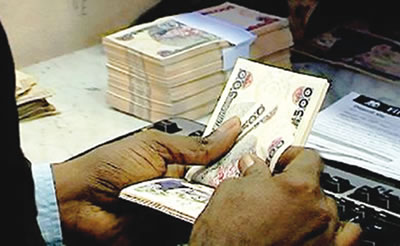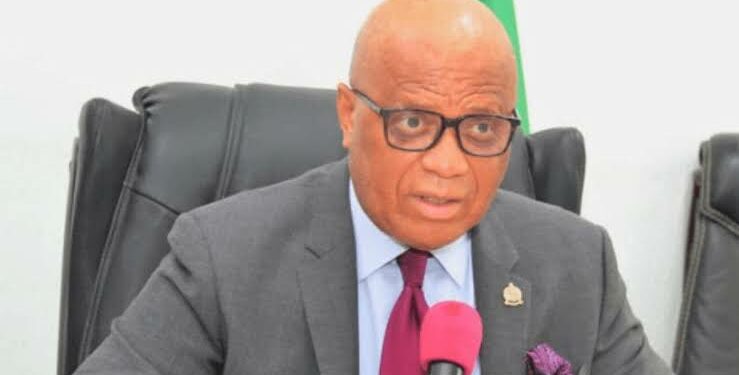During the naira crisis in 2023, I could not buy foodstuffs because market women refused to collect transfer payments. The restaurant beside my house also rejected electronic transfer payments. Although in accountancy, there is no difference between cash held in a bank and a fiat currency, as I lay in bed with an empty stomach that night, I admitted that cash in hand is king in times of uncertainty.
The World Bank 2021/2022 data revealed that Nigeria is a low-cash economy (when compared with other countries) in terms of physical cash in circulation. According to data from the Nigeria Inter-Bank Settlement System, out of Nigeria’s adult population of 160 million, 99.8 million do not have bank accounts as of January 10, 2024. There is a significant portion of the unbanked, underbanked and the informal sector that primarily relies on physical cash for their financial transactions. Culturally, Nigerians prefer physical cash to money transfers and gift-giving. It is a sign of goodwill and trust.
Nigeria has had a history of bank fraud. Nigerian banks lost N2.09bn to fraud in Q4 2023, according to a report from the Financial Institutions Training Centre. The report also revealed a total of 12,405 fraud cases. Mobile fraud swallowed N356.57m, Automated Teller Machine fraud totalled N40.47m, POS fraud rose by 95.01 per cent surge, and web fraud increased by 50.49 per cent. These frauds have reduced public confidence in the banking system and resulted in Nigerians withdrawing their deposits and keeping their money in physical cash.
The CBN data showed that Nigeria’s currency in circulation in March 2024 was N3.87tn and the currency outside banks was N3.63tn. Many Nigerians are hoarding physical cash while others have become reluctant to deposit their cash in banks. In almost every club and owanbe in Nigeria today, money exchangers are usually present with mint notes to trade and make a profit. In some businesses, whoever comes in with cash in hand to buy is often given discounts, free shipping or extra products. In Nigeria, employee wages are mostly paid in cash.
In business, cash is valuable because it allows businesses to survive economic downturns. Except there is a coup and the value of money is reduced, cash is a simpler method of dealing with retail sales. In Nigeria, fiat currency is superior to cash reserves held digitally with a bank. Many companies still prefer cash payment to any other form of payment.
Statistics of payment method reported by Jumia in 2017 showed that 67 per cent of Nigerians prefer to pay by cash on delivery. Cash payment reduces the paperwork and time needed to visit the bank. It allows for the immediate use of the cash and avoidance of taxes, and bank charges that accompany other forms of payment in Nigeria. Cash payment is more reliable. It is easier and faster to spot a fake currency than a fake alert in Nigeria.
The more easily available the cash is, the easier a business will be to pay its operating expenses, even if revenues are low. Without an adequate amount of cash, you may lose potential business opportunities. For example, during the COVID-19 pandemic and the recent japa wave, there were numerous distress sales. Many assets were sold for very low prices. Only those who have cash can maximise these opportunities.
In the field of investment, the time value of money states that a naira today is worth more than a naira tomorrow. As you invest in stocks, mutual funds, real estate and cryptocurrency, it is smart to have a portion of your portfolio in liquid assets or cash savings in your bank. Although cash is no longer considered entirely risk-free due to the impact of inflation, cash can help to lower your portfolio risk.
You may have a net worth in multimillions, if you do not have cash, you may be financially stranded and beggarly. Cash is king in not only saving you from late fees and interest payments but also in paying your bills faster and maintaining a high credit score. Events will not always go as exactly as you budgeted in your business plan. Hence, businesses need cash to meet unplanned emergencies such as legal issues, natural disasters, system crashes, prolonged power outages, and medical emergencies.
Only 36 per cent of Nigerians have emergency cash that can last at least 90 days. Financial experts recommend that households should have at least three to six months of living expenses set aside in an emergency fund. Individuals with good health and stable employment may save less cash in their emergency fund while people with an unpredictable income like freelancers should save more cash in their emergency fund. Personal preference and peace of mind also determine how much you may want to save in your emergency fund. As the cost of living and basic items increase, the money you have previously saved in your emergency fund should increase likewise. Your emergency funds may be saved to earn some interest.
Cash is not the same as profit. Cash is needed every day, while profits may not be recorded every day. Profit is the ability to offer your product or service at a price that brings sufficient gain to pay your expenses and keep you in business. When you overestimate profit and underestimate cash, you are digging the grave of your business. Without cash, profits are meaningless.
Although in the long term, cash flow and profit are expected to roughly even out, cash is more important than profit, in the short term. In the long term, profit is king. An unprofitable business with cash will thrive longer than a profitable business without cash. Bills are paid every day against cash, not net income. According to the CB Insights report, 29 per cent of startups that fail are still profitable on paper, but just ran out of cash. Indeed, revenue is vanity, profit is sanity but cash is reality.
Surprisingly, too much idle cash is one of the reasons businesses fail. It is important to strike the balance because keeping too much cash idle will make your cash lose value due to rising inflation and you will continuously forfeit potential opportunity to earn higher returns if the cash was invested. If you are too conservative, you will miss out on some risks in new opportunities. In business, cash is the fuel. Fuel is not everything but without fuel, you will be stranded, no matter the worth and brand of your car.





![[BREAKING] Minimum Wage: NLC, TUC Suspend Strike for Five Days](https://daybreak.ng/wp-content/uploads/2024/06/Labour-768x511-1.jpg)